How much damage does tilling up farm fields really cause? A lot, it turns out. American farms are losing 30 soccer fields’ worth of topsoil every minute,1)https://www.scientificamerican.com/article/only-60-years-of-farming-left-if-soil-degradation-continues/ and the global food system is careening toward a resource shortage that may lead to dire consequences in the coming decades.
However, losing soil’s natural fertility is hardly inevitable.
Throughout the world, thousands of farmers and gardening enthusiasts are experimenting with better ways to use land — ways that conserve and restore natural resources like water and fertility in a manner that mimics nature’s design. Often falling under the category of “permaculture,” these strategies strive to create farm systems that are both sustainable and self-sufficient (no tilling required).
For this list, we’ve highlighted 11 changemakers working to promote sustainability in the food system. Some are permaculture experts, others are gardeners, educators, and even podcast hosts. Regardless of the specifics, we believe that every person on this list will inspire you to think differently about what the world’s food future could look like.
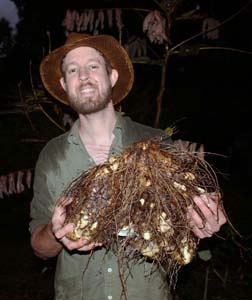
#1 – David Goodman
Author and Blogger
The author of five books and the force behind the daily blog TheSurvivalGardener.com, David Goodman (known as “David the Good”) is a permaculture enthusiast and an educator on all topics concerning gardening and sustainable living.
Goodman learned the specifics behind traditional farming at an early age on his family’s farm and discovered his passion for permaculture while living in Florida. However, after several years he realized that he wanted to experiment with permaculture techniques that went beyond Florida’s ecosystem, so he moved farther south.
He and his wife now live at an undisclosed location near the equator, where he continues to publish content on his blog and YouTube channel that draws on his 30 years of growing experience. You can also find his content at other places across the Internet, including Mother Earth News, Heirloom Gardening magazine, ThePrepperProject.com, and right here at the Grow Network!
When he’s not experimenting with better ways to grow food, Goodman spends his time painting and making music.
#2 – Paul Wheaton
Founder, Permies.com
Wheaton is a certified master gardener and permaculture designer as well as a hügelkultur enthusiast. Considered by some to be the “Duke of Permaculture,” Wheaton strives to make sustainable living both straightforward and attainable for people around the globe. He is also the founder of Permies.com, the largest permaculture forum on the Internet today. There, he provides members with detailed information about the principles of permaculture through comprehensive guides, articles, and question-and-answer sessions.
Though his passion for plants is evident from his website, Wheaton actually began his professional life as a software engineer. His prior knowledge of coding and design were essential to his forum becoming a success, and he has used his technological expertise to draw attention to numerous other permaculture experts over the years. You can connect with him through the Permies.com forum, on his YouTube channel, and often through personal workshops on his own property in Western Montana.
Recently, Wheaton has been experimenting with rocket mass heaters and developing his own designs for a semi-underground natural building technique that he calls “wofati.”
#3 – Jerome Osentowski
Founder, Central Rocky Mountain Permaculture Institute
By common consensus, Jerome Osentowski is considered one of the most accomplished permaculture designers in North America today. Known as a forager and sustainable design enthusiast, Osentowski grew up in Nebraska but now maintains a passive solar house in Colorado.
A permaculture designer for over 30 years, Osentowski founded the Central Rocky Mountain Permaculture Institute, where he successfully farms at more than 7,000 feet above sea level. His permaculture specialty is greenhouses, and he maintains an acre of intensively cultivated indoor and outdoor forest gardens, as well as a plant nursery. These gardens are the foundation of his permaculture courses, which are the longest-running in the world.
Osentowski’s greenhouse designs range from homesteader-friendly to high-budget commercial systems. However, regardless of size, they all rely on ecological principles to trap heat and regulate interior conditions in order to encourage the best possible plant growth. His book, The Forest Garden Greenhouse, presents the principles he uses to bring forest gardening indoors through zero-energy techniques and permaculture design.
#4 – Geoff Lawton
Managing Director, Permaculture Research Institute
Renowned permaculture designer Geoff Lawton has spent thousands of hours teaching and consulting about permaculture, as well as implementing self-sustaining building and garden designs around the world.
Taught by the “father of permaculture,” Bill Mollison himself, Lawton has worked in over 50 countries for clients ranging from private individuals and community centers to governments and multinational companies. He has educated over 15,000 permaculture students worldwide, and his designs in Australia won him the Permaculture Community Services Award in 1996.
Throughout the years, Lawton has established demonstration sites for his permaculture techniques that work as sustainable educational centers. Today, he is the managing director of both the Permaculture Research Institute Australia and the Permaculture Research Institute USA. To access some of his training online, visit GeoffLawtonOnline.com.
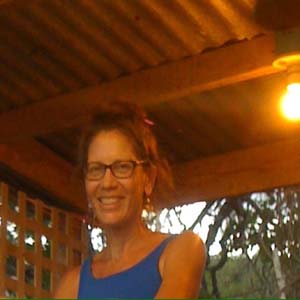
Source: https://www.linkedin.com/in/jenny-nazak-b44b4a7/
#5 – Jenny Nazak
Author, Deep Green
A longtime sustainable farming enthusiast, Jenny Nazak is a permaculture educator, eco-activist, and community organizer. She has made it her mission to help environmentalists improve their effectiveness in “walking the talk” of personal sustainability without compromising the benefits of financial security, health, free time, and inner peace in the process.
Nazak’s passion for permaculture started in childhood during long walks outdoors, and was furthered during the time she spent in other countries that incorporated sustainable design into their infrastructure. Inspired to make a change in her home country of America, Nazak took permaculture classes in 2005.
Today, she heads up the Austin, TX, Permaculture Guild and offers workshops, presentations, and consulting that help small businesses find innovative ways to incorporate permaculture principles into their practices. Her first book, DEEP GREEN, was published in August 2017.
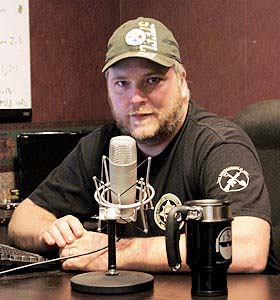
Source: http://www.thesurvivalpodcast .com/
#6 – Jack Spirko
Host, The Survival Podcast
Jack Spirko is the founder and host of The Survival Podcast, a daily online audio show about self-reliance, disaster preparedness, and debt-free living. He is also a passionate follower and teacher of permaculture principles.
Spirko’s career path to podcast host isn’t typical. He spent time in the military and learned technical, marketing, and sales skills as a small business owner afterward. “The Survival Podcast” began in 2008 as informal recordings Spirko made each day during his 55 mile commute to work. Within a year, the show grew from about 2,000 daily listeners to over 15,000, so he developed it into a full-time business.
Today, the show attracts a half million-plus daily listeners and has inspired thousands to improve their self-sufficiency and start taking control of their own lives. The podcast regularly covers topics related to homesteading, personal economics, investing, small business ownership, debt elimination, homeschooling, permaculture, primitive skills, and more.
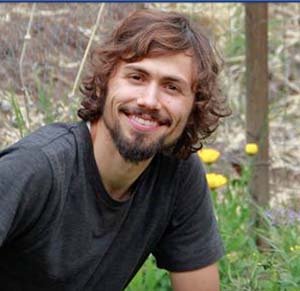
Source: http://www.adamcortell.com/ permaculture-matt-powers/
#7 – Matt Powers
Author, The Permaculture Student 1 & 2
Matt Powers is a renowned expert in the world of permaculture and regenerative agriculture, and he teaches gardening and farming techniques to families, schools, and adults on every continent besides Antarctica through online courses, videos, and books. His first book, The Permaculture Student 1, has been translated into over a dozen languages and is considered by many to be foundational to an understanding of permaculture.
Despite his success in the world of natural gardening, Powers never set out to be an author or farmer. Instead, as a young adult, he worked as a recording artist and musician in New York City. After his wife lost her thyroid to cancer, the two underwent a major lifestyle change to better understand the role that food played in their physical health and how to eat the best food for their bodies. They turned to local, organic food, but found it hard to source as much as they needed due to the desert conditions in the Sierra Nevadas where they lived. For this reason, they started taking steps to grow their own food sustainably and with minimal inputs.
After learning the basics of permaculture, Powers grew inspired by the philosophy and implemented the techniques in his garden to great effect. Passionate about spreading the knowledge of sustainable agriculture design to as many people as possible, he became a speaker, writer, and podcast producer who presents information about the practical implications of permaculture for farmers and backyard growers alike.
#8 – Tom Elpel
Founder, Green University
A successful author, builder, educator, and conservationist, Elpel credits his grandmother with much of his passion for outdoor living. As he was growing up, the two of them spent hours exploring the hills of Montana looking for arrowheads and evidence of wildlife. During these adventures, Elpel gained an interest in native plants and the ways they could be used, which inspired a passion for nature and survival skills that has stuck with him ever since.
Because of this passion, Elpel founded Green University in Pony, Montana. With a focus on equipping students to answer the world’s big sustainability questions, the university’s programs offer a unique way to connect the dots between wilderness survival, botany, and sustainable living by integrating them into a set of practical skills that students can apply in their daily lives. Students learn how to harvest wild food, make their own clothing, and thrive in survival situations.
In addition to his work with Green University, Elpel is also the founder of the Outdoor Wilderness Living School, an innovative program that educates school groups through immersive wilderness experiences, helping them reconnect with nature. Through his publishing company HOPS Press LLC, Elpel has published numerous books and videos about wilderness survival, nature, and sustainable living.
#9 – Brad Lancaster
Author, Rainwater Harvesting for Dryland and Beyond
Living in a place that gets very little rainfall has helped make Brad Lancaster passionate about harvesting it. The Sonoran Desert that Lancaster and his brother call home gets just 11 inches of rainwater a year, but the two still manage to harvest over 100,000 gallons on their eighth-acre urban lot. They then use this water to tend to their food-bearing shade trees, numerous vegetable gardens, and landscaped rain gardens. In turn, the trees and gardens provide wildlife habitats, natural beauty, medicinal plants, and more.
Hoping to empower people to make the most of the natural resources around them, Lancaster cofounded HarvestingRainwater.org. He also authored the book series Rainwater Harvesting for Dryland and Beyond, which reveals ways that desert dwellers can transform their communities for the better by making the most of the water that’s naturally available. Since 1993, Lancaster has also run a permaculture consulting and design business.
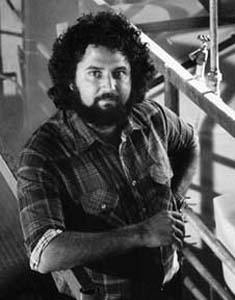
Source: http://www.permaculture. com/node/237
#10 – David Blume
Founder, Blume Distillation
The founder of Blume Distillation, David Blume is a permaculture teacher, entrepreneur, and force for social change for the betterment of the environment. Growing up, he worked with his father to grow almost all the food that his family ate, despite the fact that they lived in the middle of urban San Francisco.
Blume put himself through college by teaching summer backpacking and ecology classes, and majored in Ecological Biology at San Francisco State University. In the late 70s, he worked for NASA on experiments with solar-powered sewage treatment plants. He joined the Mother Earth News Eco Village as an expert in alternative building techniques soon after.
After the 1980s energy crisis, Blume began experimenting with alternative fuel sources like ethanol and wrote and hosted the 10-part series Alcohol as Fuel for PBS affiliate KQED. He also wrote the accompanying book, Alcohol Can Be a Gas! However, the information he presented was so inflammatory to oil and gas companies that they threatened to sue PBS unless it pulled the content, and the network caved. Despite these setbacks, Blume has continued to develop Blume Distillation into an ethanol company that promotes the power of sustainable, small-scale fuel production.
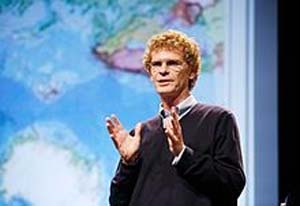
Source: https://en.wikipedia.org/wiki/ Cary_Fowler
#11 – Cary Fowler
Founder, Svalbard Global Seed Vault
Cary Fowler is the brainpower behind the Svalbard Global Seed Vault, which is designed to survive any crisis. Also known as the “doomsday vault,” Svalbard was created to ensure viable post-disaster agriculture through seed diversity. It provides the highest possible security for almost a million unique crop varieties and has been described as an “inspirational symbol of peace and food security” for all humanity.
It was Fowler’s suggestion to create the vault within the Arctic Circle in Norway. He headed the committee that developed it and is the chair of the international council that manages its operations.
The vault was completed in 2008, but Fowler was involved in its planning for decades prior to that. He led the team that created the first global assessment of the State of the World’s Plant Genetic Resources for Food and Agriculture in the early 1990s, and he drafted the first Global Plan of Action for the Conservation and Sustainable Utilization of Plant Genetic Resources for Food and Agriculture. The latter eventually led to the creation of the vault. He is also the author of several books, including Shattering: Food, Politics, and the Loss of Genetic Diversity; Unnatural Selection: Technology, Politics, and Plant Evolution; and Seeds on Ice: Svalbard and the Global Seed Vault.
Want To Meet Even MORE Changemakers…?
Want to spend more time learning from and supporting the work of changemakers? Consider becoming a member of the Grow Network here.
And, if you missed the previous articles in this series, you can read them using the following links:
- Read the first article, focused on sustainable farming, here.
- Read the second article, about changemakers in natural health, here.
- And read the third article, about female changemakers, here.
Then, would you let us know if we missed someone?
We know these are just a handful of the many, many people making a difference in the areas of sustainable farming, permaculture, and natural health today.
Please leave us a comment to let us know who else you look up to in these areas — whether it’s a big name, a relative, or your next door neighbor! (Because, yes, we have something else up our sleeve — stay tuned! 😉 )

The Grow Network is a global network of people who produce their own food and medicine. We’re the coolest bunch of backyard researchers on Earth! We’re constantly sharing, discovering, and working together to test new paths for sustainable living—while reconnecting with the “old ways” that are slipping away in our modern world. We value soil, water, sunlight, simplicity, sustainability, usefulness, and freedom. We strive to produce, prepare, and preserve our own food and medicine, and we hope you do, too!
References
| ↑1 | https://www.scientificamerican.com/article/only-60-years-of-farming-left-if-soil-degradation-continues/ |
|---|

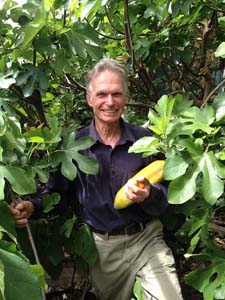
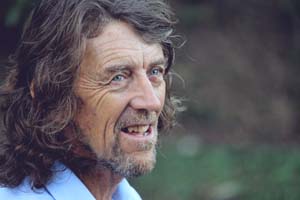
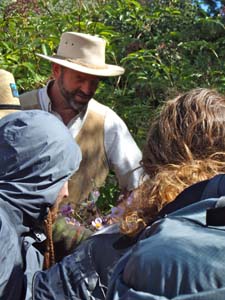
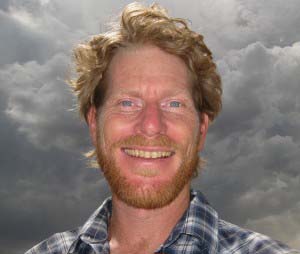
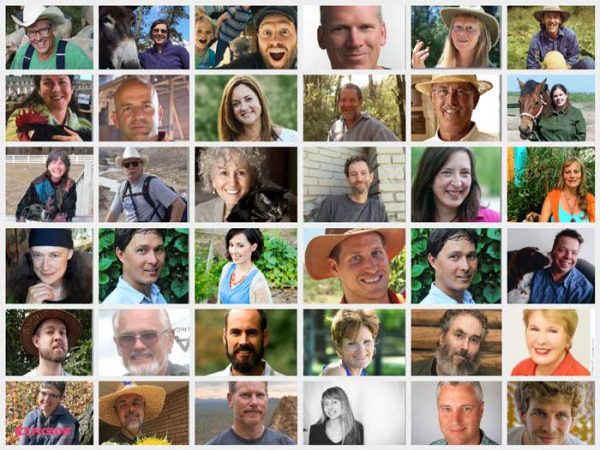







COMMENTS(33)
Hello my known lady changemakers are Australians 1. Morag Gamble, Cecilia McCauley and Rosemary Morrow. -All permies ?
I hope you leave the Changemakers series posted on the website for a long time because these are worth going back to again and again. Two of them have inspired me to think in terms of beginning to grow my own food, even in our desert conditions. Without even reading their books, I feel as if it can be done, and I am determined to do it. I am presently looking for property. I am so excited to begin.
Thanks for all this,
Sharon
I would like to submit a nomination for the next series of change makers, or whatever is up your sleeve,
Alexander Ojeda Is cofounder and driving force behind our local permaculture group. He is the primary speaker, leader of meetings, organizer of PermaBlitzes to help others and all around mentor for the Permaculture Jax group ( https://www.facebook.com/groups/376132752470842/ ) its over 4300 widely scattered members and it offshoots: Clay County Permaculture and PermaNorth Jax . He has always offered a helping hand and advice to various groups and individuals within driving distance when setting up permaculture systems. He is the local go-to Permaculture guy for anyone seeking info.
Thank you for posting this inspiring group in all 4 sections. I will try to copy and save so I can find their books and other reference materials.
Hi, these are all wonderful change makers, but your list would be better if it contained at least 50% women. Just having one woman gives me a sense of imbalance with no good reason to be imbalanced. Having more women on lists like these will give you more credibility in terms of getting donations. As a woman, I don’t provide financial support when something so obvious as including women in 2017 lists of this sort is not happening. Appreciate that you are highlighting permaculture and regenerative ways of living but please step it up on supporting both sexes in the movement. Thanks, Jesse
And an SJW shows up!
Divisive and derisive terms like “sjw” are an anathema to the ideas behind permaculture. And you don’t need to demand exact gender parity to think it’s weird that 10 out of 11 folks on this list look so much alike.
Yes, please: more women and maybe some non-white folks? Diversity is an important principle in permaculture and society at large! 🙂
Hi,
You have a great group here. I may be preaching to the choir, so please forgive me if you already know John Jeavons.
More than 15 years ago, he was speaking to large groups about the loss of topsoil world-wide.
http://www.johnjeavons.info/john-jeavons.html
http://growbiointensive.org/
Good job, Marjory!
Thanks,
Ed DeRosier
Edward.DeRosier@earthling.net
Where’s Richard Perkins?
http://www.ridgedalepermaculture.com
Perkins, Doherty, Hablutzel, Shepard, Bertrando. Jesus christ there are a million people better than these.
This has got to be the worst list ever. Half of the people on here are charlatans.
For starters….. Spirko, Lawton, and Wheaton. They are clever marketers. Nothing more.
hi i am interest by your comment, can you devellope please. about the marketers peoples and could you guive your list of people for you are doing better and are more just. thanks.
Paul Wheaton has earned himself a reputation as kind of a slum lord.
https://www.reddit.com/r/Permaculture/comments/77nm7e/two_years_under_a_permaculture_slumlord/
Eleven permaculture experts. You could only find one woman ?
Clearly there are only 1 in 12 women change makers.
Thanks so much for pointing that out!!
Perhaps the gender difference is because women are more grounded and less interested in promoting their endeavors than men. The women in permaculture need to be sought out and noted.
One woman and 10 men ? Let’s just leave it there. When women want to get involved in certain changemaking areas they need female role models also. We know that now…
Great point! I really enjoy and appreciate the video news from the Bealtaine Cottage by Colette https://www.youtube.com/user/BealtaineCottage/videos
Check these changemakers also: Justine Rhodes of the “Great American Farm Tour” https://www.youtube.com/channel/UCOSGEokQQcdAVFuL_Aq8dlg/videos, Dan of Plant Abundance https://www.youtube.com/user/plantabundance/videos, and Larry at Urban Hydro http://www.city-hydro.com … there are so many, these three are just a few to note…
edit: Justin Rhodes, not Justine
Are any of these changemakers representing Findhorn?
This list is all white and only has one woman. Not reality.
Purple Earth Cuisine is aligned with your mission by inviting urbanites to venture beyond the garden gate to a world of purple plant foods. With the forthcoming cookbook, Purple Earth takes you on a journey back to real food grown in real soul by real caretakers of the Earth.
This is a terrible list. Maybe about three are credible, have legitimate experience, and would be recommended. Several of the others have proven themselves to be more talk than anything else, and even derogatory towards others. These are not permaculture changemakers with permaculture principles. These are not true changemakers. A real changemaker list would be a list of “elders” who have been doing what they do for decades and doing it well every day. Not spending their time promoting themselves only for others to learn they could have spent their money somewhere else. As for a “separate” list of female changemakers, as you wrote at the bottom, this is misleading. It is a list of “14 Women Leading Today’s Natural Food Movement”. Not “11 Women Leaders in Permaculture and Sustainable Living”. You can not just redirect to something that is not equivalent. If you do create a “Women Leaders in Permaculture and Sustainable Living” do your research. They tend not to be the ones who are on social media, same with men. Then you’d have to change the title of this from “11 Leaders in Permaculture and Sustainable Living” to “10 Male Leaders in Permaculture and Sustainable Living” in contrast. There are people out there who know the distinctions and are not fooled by such lists.
John Shaffer Real Goods The institute for sustainable Living in Hopland Ca!!!!!!!!!!!!
I am just reiterating what was already stated, but sad that the list only included one woman and only Caucasian folks
We would love to communicate with men or women wanting to get involved in our permaculture project here in costa rica.
We would love to hear from folks wanting to get involved in permaculture heee in costa rica
Nice list, thanks. Too bad there are so many snowflake SJWs in permaculture that whine about gender and skin color.
This is a fantastic program. It takes any of us from wherever we are to well beyond that point into food independence!